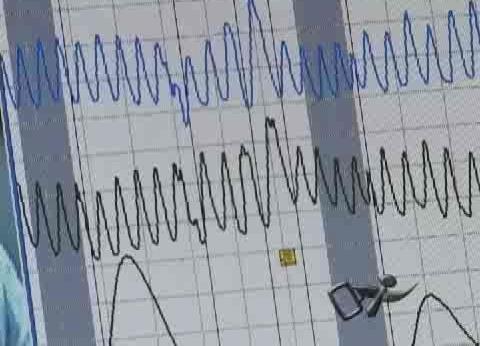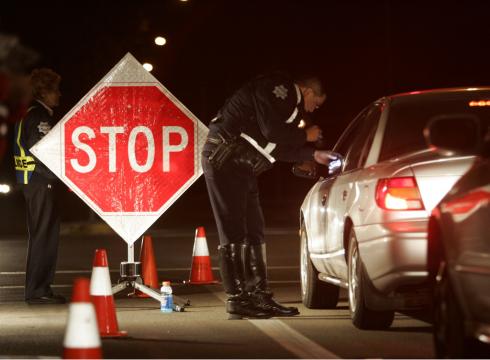Federally funded researchers have uncovered two methods to divide and diversify the difference between hemp and cannabis to assist to crime labs.
Because Cannabis is still a crime and Hemp is not…
The Controlled Substance Act of 1970 classified the plant cannabis, which was historically classified as either marijuana or hemp, as an illegal drug, a Schedule I controlled substance with a high potential for abuse and no FDA-approved medical use in the United States.
For more than 50 years, hundreds of thousands of people were arrested and imprisoned for possessing it.
317,793 Americans are arrested annually for possession of marijuana. Easy Target – Easy Money.
The Farm Bill of 2018 changed this straightforward classification of cannabis. The bill legalized the form of cannabis classified as hemp, while the form classified as marijuana remained illegal.
The task of determining the distinction has been assigned to law enforcement and forensic laboratories, a responsibility that has proven to be challenging, time-consuming, and costly.
Federally funded researchers have made significant advancements in accurately distinguishing between marijuana and hemp by precisely analyzing the THC levels found in flower and edibles.
The National Institute of Justice (NIJ), an entity within the “Justice” Department, is actively promoting the results of two research projects that it funded, both centered around cannabis lab testing. These findings are now being shared exclusively with select law enforcement agencies.
The aim of the initiatives was to streamline the testing process in order to address the increasing crime lab backlogs caused by the federal legalization of hemp with up to 0.3 percent THC under the 2018 Farm Bill.
This legalization has complicated cannabis-related cases, and thus the initiatives were implemented to help resolve these challenges.
Have your rights been violated?
Have your driving priviledges been revoked?
Has your professional license been suspended?
Second Amendment rights taken away?
Have you been charged with a crime?
Call our office to see if we can help
Komorn Law 248-357-2550
Current testing methods are unable to accurately determine the exact amount of THC in a sample, as stated in the recent update by NIJ. However, the researchers they have funded have achieved a significant breakthrough.
Using gas chromatography-mass spectrometry (GC-MS) and direct analysis in real time-high-resolution mass spectrometry (DART-HRMS), they are now able to isolate the THC content, along with other cannabinoids.
This discovery marks a significant advancement in our ability to analyze and understand the composition of cannabis samples.
In the government, everything is go spend more money and if that doesn’t work, it’s go spend more money and if that doesn’t work spend more money and so on and so on.

Related Articles
No Results Found
The page you requested could not be found. Try refining your search, or use the navigation above to locate the post.
More Posts

Polygraphs Proven Unreliable, Used for Police Intimidation
Polygraphs are widely recognized as unreliable yet police still use them to elicit confessions. By Michael Komorn Many states don’t allow polygraph test to be admitted in court because they are unreliable. Their lack of reliability is widely recognized by criminal...

Arrests for DUI’s on the Rise
By Michael Komorn Arrests for DUI’s have been on the rise across Michigan. This trend could drastically increase as The National Transportation Safety Board (NTSB) has called on state authorities to reduce the legal limit to 0.05 percent. Currently, all 50 U.S. states...

US District Court Judge rules police cannot enter a car without a warrant to facilitate a drug dog sniff
Federal Judge Applies GPS Ruling To Drug Dog Traffic Stop By Michael Komorn Last week, a judge with the US District Court for the Southern District of West Virginia applied the precedent to the common police practice of “permeation” where a police officer enters a...

Drug Checkpoints: Unconstitutional
By Michael Komorn The Supreme Court ruled in City of Indianapolis V. Edmund that drug check points are unconstitutional. So what happens when you see one on the highway? Keep calm and carry on. Police, especially in the Mid-west, have been using drug check points as a...

Knowing When to Exercise Your Rights
Remember, even if you are doing nothing wrong, there are a number of different outcomes that can occur from a police encounter. The short list includes: 1) No action, no problems; 2) A warning or citation; 3) An arrest and/or criminal charges. Exercising your rights...

Why Police Lie Under Oath
Thousands of people plead guilty to crimes every year in the United States because they know that the odds of a jury’s believing their word over a police officer’s are slim to none. As a juror, whom are you likely to believe: the alleged criminal in an orange jumpsuit...

What Did I Just Get Charged With?
Below is a list of common drug offenses as defined by the State of Michigan. If it is your second offense, it is important you read statute 333.7413 below. 333.7413 Conviction of second or subsequent violation; penalty....





